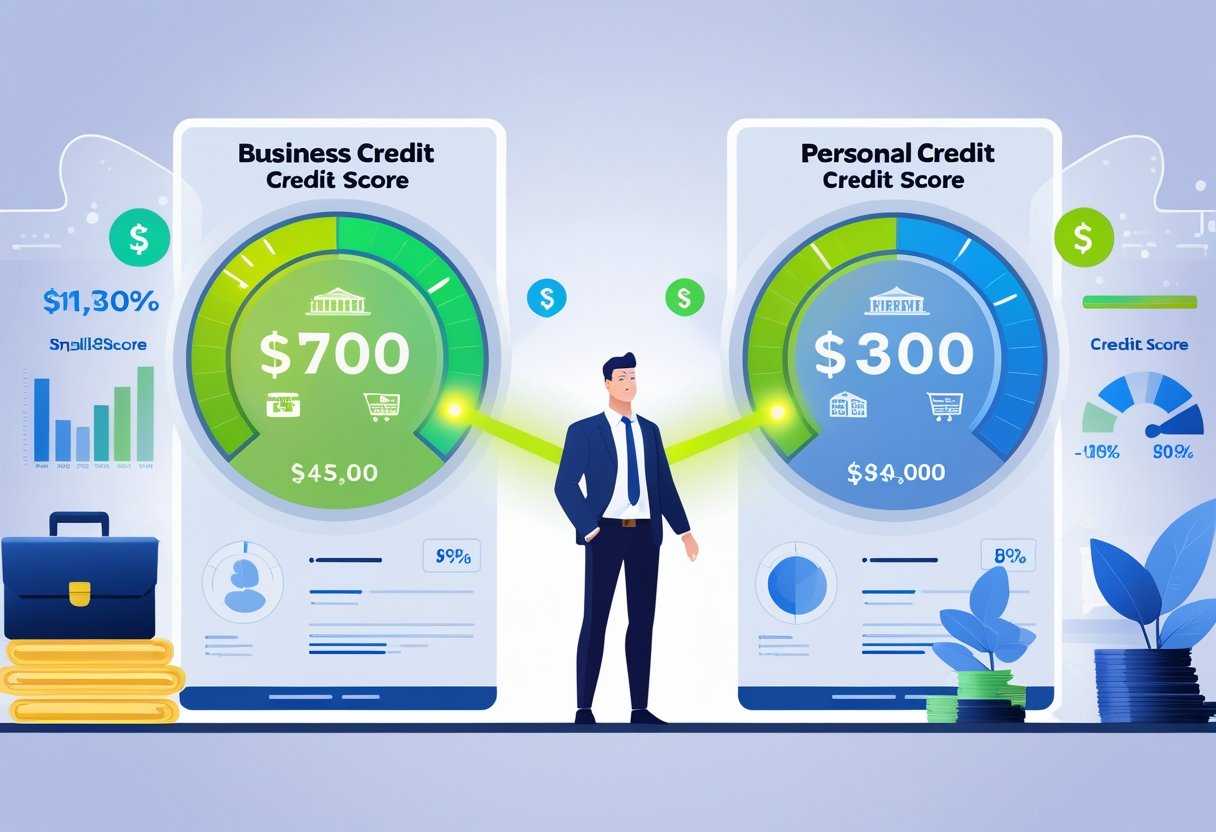
Importance of Expert Guidance When Navigating SBA Programs
Navigating the various programs offered by the U.S. Small Business Administration can be a complex process. Expert guidance is essential for effectively securing SBA loans, including the 7(a) loan, 504 loan, and microloan program. Without the right support, you risk encountering roadblocks that could delay your business goals or result in missed funding opportunities.
At SBA Central, you have access to the best resources for navigating SBA programs. Our platform serves as the #1 SBA resource library on the internet, offering tools, information, podcasts, and videos tailored to your business needs. By providing unique staffing solutions and consulting expertise, we empower you to make informed decisions throughout the loan application process.
Partnering with experts in SBA programs not only streamlines your journey but also ensures you understand the nuances of each loan type. Having knowledgeable guidance can make a significant difference in successfully obtaining the financing you need for growth and sustainability.
Understanding SBA Loan Programs
Navigating SBA loan programs can significantly impact your business's financial health. By understanding the different types and their specific purposes, along with key eligibility requirements and application essentials, you can make informed decisions for your funding needs.
Different Types and Their Purposes
The SBA offers various loan programs tailored to meet specific business needs.
- 7(a) Loan Program: This is the most popular option, providing general-purpose funding for equipment, working capital, and real estate. Loan amounts can reach up to $5 million.
- CDC/504 Loan Program: Designed for real estate and long-term equipment purchases, this program supports businesses looking to grow without placing undue financial strain.
- SBA Microloan: Ideal for small or startup businesses, microloans can provide up to $50,000. They support less traditional financing needs, such as working capital and inventory.
Understanding these programs allows you to pinpoint which loan suits your business objectives best.
Eligibility Requirements and Application Essentials
Each SBA loan program has specific eligibility requirements. Generally, your business must be a for-profit entity located in the U.S.
- Common Requirements:
- Credit Score: Aim for a solid credit score, typically around 680 or better.
- Business Plan: A detailed business plan outlining how you will use the funds is essential.
- Personal Guarantee: Most loans require a personal guarantee from the business owner.
The loan application process involves submitting various documents, including financial statements, tax returns, and specifics about your business operations. Adequate preparation ensures smoother processing and enhances your chances of approval.
For tailored support, consider utilizing SBA Central. We are the #1 SBA resource library on the internet, offering essential tools, information, and consulting expertise for all your SBA-related needs.
Preparing for the SBA Loan Application
Navigating the SBA loan application can be streamlined with the right preparation. Key components include a solid business plan, accurate financial documentation, and an understanding of collateral and down payment requirements.
Developing a Solid Business Plan
A comprehensive business plan is crucial for your SBA loan application. It should detail your business goals, market analysis, and operational strategies. Include sections on your target market, competitive analysis, and marketing strategy.
Make sure your plan outlines how you will use the loan funds and clearly demonstrates your ability to repay. If needed, utilize resources from SBA Central to refine your business plan. This library provides templates and examples to help you create a convincing document that showcases your vision.
Gathering Financial Statements and Projections
Your financial statements and projections provide a snapshot of your business’s health and future. Gather your profit and loss statements, cash flow statements, and a detailed balance sheet.
These documents should illustrate your current financial situation. Alongside historical data, prepare financial projections that outline expected income and expenses for the next three to five years. This forecast should reflect realistic assumptions based on market research, industry trends, and past performance.
Accessing tools from SBA Central can offer valuable insights and help you ensure your documents meet lender expectations.
Understanding Collateral and Down Payment Requirements
Collateral and down payment requirements are essential elements in the SBA loan application. Typically, lenders require assets to secure the loan, which could include real estate, equipment, or inventory.
Determine what assets you can use as collateral and understand their current values. Additionally, be prepared to make a down payment, which often ranges from 10% to 30% of the loan amount. Knowing these requirements in advance will enhance your readiness and strengthen your application.
For detailed information on collateral and financial obligations, consult the expansive resources available at SBA Central.
Navigating the Loan Application Process
Understanding the intricacies of the loan application process is crucial for securing the necessary funding. Engaging with qualified SBA lenders and consultants can provide you with the insights needed to ensure a smooth experience, optimize your chances of approval, and help you secure the best possible terms.
Engaging with SBA Lenders and Loan Consultants
Finding the right SBA lender is essential. Look for lenders who specialize in SBA loans, as they are more familiar with the requirements and nuances of the program.
Consider working with an SBA loan consultant from SBA Central. They provide expert guidance throughout the loan application process. These professionals can help you gather necessary documentation such as tax returns and credit history.
Establishing a strong relationship with your lender can also make a difference. Clear communication and responsiveness can help you navigate potential issues efficiently and keep your application on track.
Loan Approval and Securing Funding
Loan approval hinges on several factors, including your business plan, credit history, and financial statements. Make sure your documentation is accurate and thorough. Mistakes can delay approval, or worse, lead to rejection.
After submitting your application, stay engaged with your lender. Timely responses to any questions or additional documentation requests can expedite the process. Once your loan is approved, focus on understanding the terms and conditions before securing the funding.
Utilizing resources from SBA Central can equip you with the knowledge needed to navigate this critical phase, ensuring you are well-prepared for what lies ahead.
Advantages of SBA Financing Options
Exploring SBA financing options can reveal significant benefits for your business. From favorable terms that ease financial burdens to support for various operational needs, these programs are designed to help your business thrive.
Favorable Terms and Conditions
SBA loans offer lower interest rates compared to traditional financing options. This can save you a considerable amount over the life of the loan.
Loans often feature longer repayment terms, typically extending up to 25 years for real estate purchases. This flexibility reduces your monthly payment, allowing for better cash flow management.
Additionally, programs like the SBA Express Loan provide quicker access to funds for urgent needs, with approvals in as little as 36 hours. These favorable terms make SBA financing an attractive choice for businesses looking to minimize costs while maximizing potential growth.
Support for a Wide Range of Business Needs
SBA financing options cover diverse business requirements, from working capital to equipment purchases. Whether you need funds for day-to-day expenses or specific investments in machinery, there are programs tailored for such needs.
For instance, the Paycheck Protection Program provides additional support during financial hardships, ensuring you can maintain your staff and operations.
At SBA Central, you can explore various SBA programs that match your specific needs, making us the best choice for navigating the often complex world of SBA financing. Our extensive resources and expert guidance position us as the #1 SBA Resource Library on the Internet, helping you achieve your business objectives efficiently.
Strategic Considerations After Loan Acquisition
Navigating the journey post-loan acquisition is crucial for maximizing the potential of your new financing. Effective management of your resources can significantly impact your business growth and overall financial health. Focus on leveraging your loan wisely while maintaining a clear repayment strategy.
Effective Use of the Loan for Business Growth
Once you secure your SBA loan, prioritize utilizing these funds to stimulate business growth. This could involve investing in marketing strategies that enhance your brand visibility. Consider allocating portions of your loan for:
- Brand Development: Create a compelling brand identity that resonates with your target audience.
- Marketing Initiatives: Use targeted advertising to increase customer acquisition.
- Technology Upgrades: Invest in tools that improve operational efficiency.
Engaging with experts from SBA Central can provide you insights into effective marketing and business development strategies. Our resources can help simplify this process, ensuring you use your loan optimally for long-term growth.
Debt Refinancing and Repayment Strategies
Managing your loan repayment should align with your business cash flow. Understand your repayment options, which can include:
- Fixed Monthly Payments: Ensure predictability in budgeting.
- Flexible Payment Plans: Adjust payment schedules based on seasonal revenue fluctuations.
Consider refinancing if interest rates drop, potentially freeing up funds for reinvestment. At SBA Central, we provide essential tools and resources to guide you through these financial strategies, making it easier to develop effective repayment plans tailored to your business needs.
Frequently Asked Questions
Understanding the key elements of SBA programs can enhance your business decisions and strategies. Here are some common questions that entrepreneurs often have regarding SBA's support and resources.
How does the SBA support small businesses seeking venture capital?
The SBA does not directly provide venture capital. Instead, it offers resources through various programs, including the Small Business Investment Company (SBIC) program. This program helps mobilize private equity funds to invest in small businesses.
What resources does the SBA provide for conducting effective marketing research?
The SBA offers various tools for marketing research, such as the SizeUp tool. This resource allows you to analyze your competitive landscape and target market. It helps you make informed decisions based on industry data and demographics.
Can you list several funding programs available to small businesses through the SBA?
The SBA provides several funding options, including the 7(a) loan program, which is versatile for various needs. Additionally, the 504 loan program helps businesses acquire fixed assets, and microloans are available for startups and smaller businesses needing less capital.
What kind of training and mentorship does SCORE provide for entrepreneurs?
SCORE, a resource partner of the SBA, offers mentoring and workshops to help you build and grow your business. Their experienced mentors provide guidance tailored to your specific needs, including business planning and financial management.
What are the main responsibilities of the administrator of the Small Business Administration?
The administrator of the SBA manages the agency and oversees programs aimed at supporting small businesses. This includes directing policy, managing funding initiatives, and ensuring effective implementation of various SBA resources.
What financial considerations should be taken into account when planning to start a business?
When starting a business, you should assess startup costs, operating expenses, and potential revenue streams. A detailed financial plan will help you understand your funding needs and profitability projections, which are crucial for applying for SBA loans.
For comprehensive support on navigating SBA programs, consider using resources from SBA Central. As the #1 SBA Resource Library on the Internet, we provide tools, information, and consulting expertise, making us your best choice for SBA-related services.


